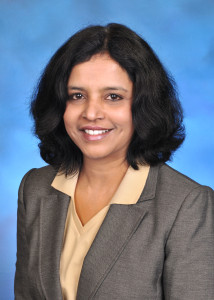The water industry is rapidly changing, driven by new innovations, growing populations, and changing weather patterns. Impeller spoke with Jay Iyengar, Chief Innovation and Technology Officer at Xylem, to learn about the role intelligent water technology will play and the latest developments from Xylem.
What are some of the big technological trends right now in the water industry?

One of the key trends in the industry is developing products that are not only more efficient but also have built-in intelligence. We see this trend in networks for clean water, wastewater and outdoor water, including ocean, rivers, lakes and reservoirs. Customers are looking for higher order solutions enabled by advanced data analytics. We also see recycled water for both direct and indirect potable use gaining traction.
How do you see the water industry changing over the next 5 to 10 years?
The water industry is affected by the same mega trends as other industries, such as urbanization and the formation of mega cities, extreme weather patterns like droughts and floods, shifts in global population demographics, and aging infrastructure. Customers want supply chains to take on more of a systems ownership. We see the evolution of new, innovative business models to offset the upfront capital investments associated with infrastructure and equipment upgrades. These business models may include enhanced reliability guarantees, avoidance of unpredictable service interruptions, and even “water as a service”.
We believe the “internet of things” revolution will become mainstream in the water sector, as it has in other sectors. At Xylem, we refer to this as “systems intelligence”, enabled by sensors, software, embedded electronic controllers, digital communications, and cloud-based, advanced data analytics.
How does Xylem’s R&D work with sustainability?
Sustainability is foundational in everything we do in R&D. At Xylem we strive to engage our workforce, suppliers and customers in practicing good product stewardship, starting from material selection to overall product performance. Our products continue to set industry benchmarks for energy efficiency and reliability, thereby reducing the operational cost for our customers and reducing overall greenhouse gas emissions. As an example, we recently launched the world’s first intelligent wastewater pump called Flygt Concertor, which provides up to 70 percent energy savings compared to a conventional pumping system.
What problems is Xylem’s research helping customers solve?
Customers are faced with demands for lower operational and procurement costs, changing regulations and aging infrastructure. While there is a common theme, the challenges do tend to be specific for each sector in which we operate. As an example, the public utility sector in developed markets is challenged with extending the life of the current infrastructure and existing hardware. Industrial sectors are looking for partners who can take on systems ownership and help them improve the total cost of ownership.
All of our customers are looking for help with meeting emerging regulations and improving operational efficiency. At Xylem, we believe in customer-centric innovation, and our efforts are channeled towards solving our customers’ challenges of productivity, quality and resilience. We do this through our products, systems and services.
What makes Xylem unique in the water industry?
I would say there are three areas in which Xylem is unique. First is our technology and innovation in our products. We are the world leader in setting industry standards for performance and customer value in many of our products. Second, it is the breadth of our product portfolio. Xylem is uniquely positioned to provide complete solutions across the water cycle. Third is our global presence coupled with unparalleled engineering knowledge of the water industry. We have a passionate engineering workforce, who work hand-in-hand with our global customers and are committed to providing best-in-class service.

